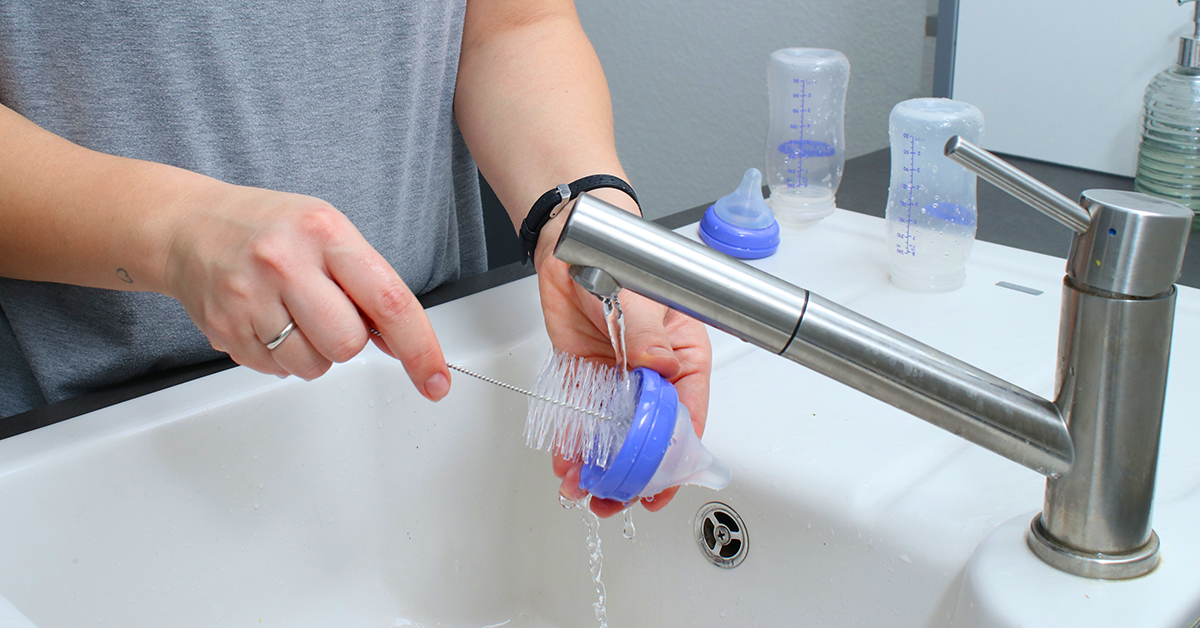HR Newsletter
Posted on: April 24, 2024
What You Need to Know About Workplace Breastfeeding and Lactation Protections

Federal laws, and laws in many states and the District of Columbia, provide workplace protections for employees needing to breastfeed or express milk. Below, we address workplace breastfeeding and lactation protections that employers need to know.
Federal protections
Providing Urgent Maternal Protections for Nursing Mothers Act (PUMP Act)
The PUMP Act amended the Fair Labor Standards Act (FLSA) to entitle more employees to reasonable break time to express breast milk for their nursing child. The PUMP Act requires employers to provide:
- A place, other than a bathroom, that is shielded from view and free from intrusion from co-workers and the public, for an employee to express breast milk; and
- Reasonable break times to exempt and nonexempt employees for one year after their child's birth, each time the employee needs to express breast milk. This time may be unpaid unless otherwise required under federal, state or municipal law, provided the employee is completely relieved from duty for the entire break.
Note: With limited exceptions, federal law requires employers to pay exempt employees their full salary in any workweek in which they perform any work, regardless of the quantity or quality of the work. As such, employers cannot deduct from an exempt employee's salary for such breaks.
An employer with fewer than 50 employees may be exempt from certain requirements under the PUMP Act if they would impose an undue hardship, causing the employer significant difficulty or expense in relation to the employer's size, financial resources, nature, or business structure. Crewmembers of air carriers are also exempt from the law. There are also special rules for rail carriers.
Department of Labor (DOL) industry-specific guidance
The U.S. DOL has released (and continues to release):
- Specific guidance on the expanded protections for nursing employees under federal law; and
- Guidance for certain industries under the expanded law.
The guidance has a presentation and answers to frequently asked questions (FAQs). For example, the FAQs for the retail and restaurant industries released in 2024 include guidance and answers to common inquiries, such as:
|
Question 1: Can I require my employees that are nursing to make up time spent on pump breaks to meet productivity measures? Answer: No. Employees cannot be required to make up the time they took for pump breaks, and employers cannot hold the time an employee uses for pump breaks against them when determining whether the employee met a productivity measure or quota. Note: An employer adding work time to an employee’s normal schedule could be considered prohibited retaliation under the FLSA. |
|
Question 2: I work in a bookstore with three bathrooms. One of the bathrooms, which is designated as a family bathroom, has one stall and a changing table. My supervisor put an out of order sign on the stall door and placed a chair in the family bathroom for me to take pump breaks. Can I be required to use the bathroom to pump breast milk if it is not being used as a bathroom? Answer: No. The FLSA requires nursing employees to have access to a place to express milk at work that is not a bathroom because using a bathroom risks contracting bacteria in the milk or pumping equipment. |
Pregnant Workers Fairness Act (PWFA)
Effective June 27, 2023, the PWFA, among other things, requires an employer with 15 or more employees to provide certain reasonable accommodations to a qualified employee that is affected by the limitations of pregnancy, childbirth or a related medical condition.
Note: The U.S. Equal Employment Opportunity Commission has published a final rule that defines and clarifies various aspects of the law. The final rule takes effect June 18, 2024.
The Pregnancy Discrimination Act
Title VII of the Civil Rights Act of 1964, as amended by the federal Pregnancy Discrimination Act of 1978 prohibits sex discrimination, which includes discrimination on the basis of pregnancy. Pregnancy discrimination under Title VII can be based on, among other things, a medical condition related to pregnancy or childbirth, which includes breastfeeding and lactation.
State and district workplace protections
Most states protect breastfeeding and many states and the District of Columbia also have laws protecting expressing milk in the workplace. Protections may vary based on employer size and other factors. Check the laws that may apply to your business to help ensure compliance:
Note: This list of locations that protect expressing milk and breastfeeding in the workplace is not exhaustive.
Reasonable Accommodations
Several states and local jurisdictions already required employers to provide accommodations for health conditions related to pregnancy or childbirth if the employee requests an accommodation with the advice of their healthcare provider or certified doula, unless doing so would impose an undue hardship on the business. Some of these laws apply to smaller employers and/or have additional requirements.
Check your state and local laws for details in your area.
Conclusion
Make sure you understand the federal, state, local laws, ordinances and any applicable industry guidance that apply to nursing employees, and:
- Draft policies and trainings accordingly, and communicate those policies clearly to employees.
- Train supervisors on how to handle requests for expressing milk, leave and reasonable accommodations.



